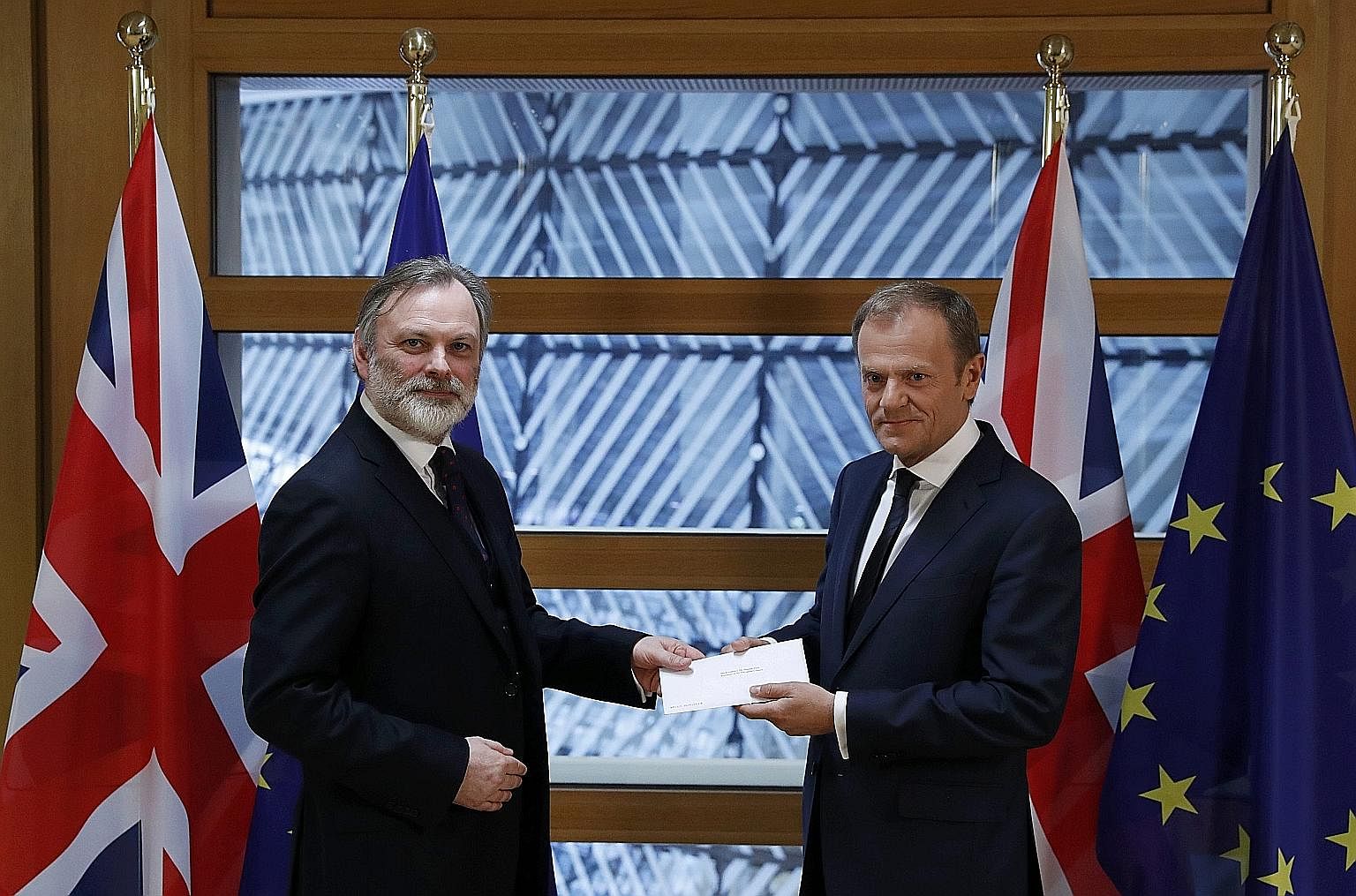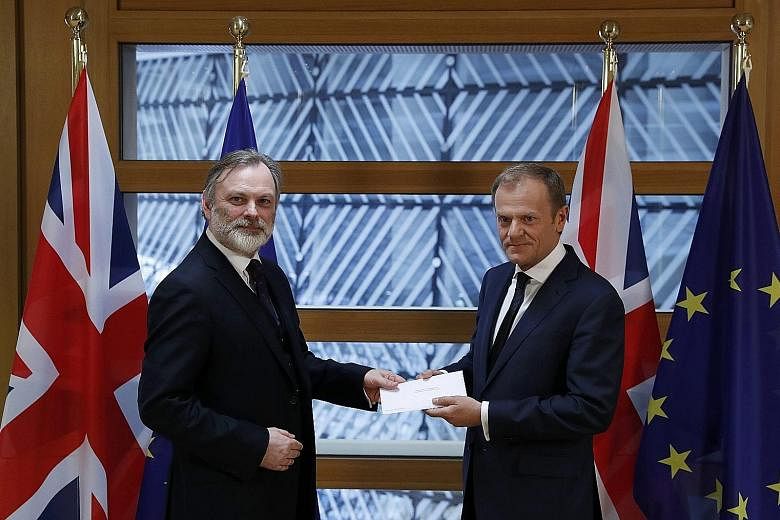Just over nine months after Britain's voters narrowly decided to pull their country out of the European Union, Prime Minister Theresa May formally started the legal process of separation by instructing her ambassador to the EU to hand in a formal diplomatic letter announcing Britain's intentions, as required by European treaties.
Both sides claim to be well-prepared for the negotiations which lie ahead. Mrs May has created an entire government department whose sole purpose is to conduct the talks for Brexit, as the process is popularly known. And the European Commission, the EU's executive body, has its own team of seasoned negotiators for the purpose.
The process will be "calculated scientifically", said commission president Jean-Claude Juncker.
But in reality, both sides have embarked on a journey into the unknown, since there is no precedent for what they are about to negotiate, and no clear guidance as to what may be acceptable to either Britain or the rest of Europe.
Nor is there much time, for although the negotiations are expected to last two years, the time available for compromises is restricted, while the potential for mishaps remains vast.

Mrs May came to power in the wake of the EU referendum last June believing that firing the Brexit starting gun would be a relatively straightforward job.
The divorce procedure is clearly explained in Article 50 of the EU's current basic treaty, concluded in the Portuguese capital of Lisbon in 2007, and Mrs May claimed to have all the powers she needed to embark on the negotiations.
Matters did not turn out that way. The British courts ruled that the Prime Minister required a special mandate from the British Parliament to initiate the country's departure, a process which took longer than expected.
In theory, the British Premier's position at the start of the Brexit discussions is not a bad one. Notwithstanding bruising parliamentary debates, Mrs May has a mandate to negotiate as she pleases. And none of the doom- laden scenarios about the impact of Brexit has come to pass: The British economy has continued to grow.
Still, huge challenges lie ahead.
Many of Mrs May's MPs want her to sever all legal links with the EU and still get free trade with Europe, or simply leave the EU without any deal at the end of the two-year negotiations mandated by treaties. Foreign Secretary Boris Johnson told Parliament in London earlier this week that the latter scenario would be "perfectly okay".
But Mrs May knows that such chaotic negotiating tactics would alienate Scotland, which voted to stay in the EU and is now demanding another referendum on the territory's independence from the United Kingdom, as well as scare foreign investors in Britain.
She has therefore allowed herself some room for manoeuvre in the Brexit talks.
The snag is that the British Premier does not control the negotiating agenda; the EU's Mr Michel Barnier, a former French minister and a tough international negotiator, does, on behalf of the remaining 27 member states.
And he proposes to start the Brexit talks with the matter which Mrs May finds most sensitive: The bill which Britain will be expected to pay as it leaves, to cover existing European projects and liabilities.
European negotiators estimate that the bill could amount to €60 billion (S$90 billion), a vast sum that is almost certainly an exaggeration, but which puts the British on the defensive.
Mr Barnier is also likely to stick to the demand that if Britain wants access to Europe's markets, it will have to accept some of Europe's rules, including the jurisdiction of European courts.
The EU also controls the timetable for the Brexit talks. Although European officials promise to publish their own Brexit "guidelines" by tomorrow, the union's negotiating stance is unlikely to emerge before an EU summit scheduled for April 29, and negotiations are likely to start only in May, after the final round of the French presidential election. But even then, not much is going to happen before Germany holds its own general election at the end of September.
And since any Brexit deal would need to be ratified by both national Parliaments and the EU Parliament, and the entire process must be completed within two years from yesterday, the estimates are that negotiators have barely a year - between October this year and next - to conclude deals disentangling an estimated 19,000 laws and regulations which the EU is responsible for.
Ironically, the drafter of Article 50 in the Lisbon Treaty was a Brit: Mr John Kerr, who subsequently became the head of Britain's diplomatic service.
Mr Kerr claimed that when he wrote that Article, he never assumed that his country would be the first to use it. He also said that Britain's chances of reaching a workable and amicable deal with the EU are "not better than 50-50".
SEE WORLD, OPINION:












